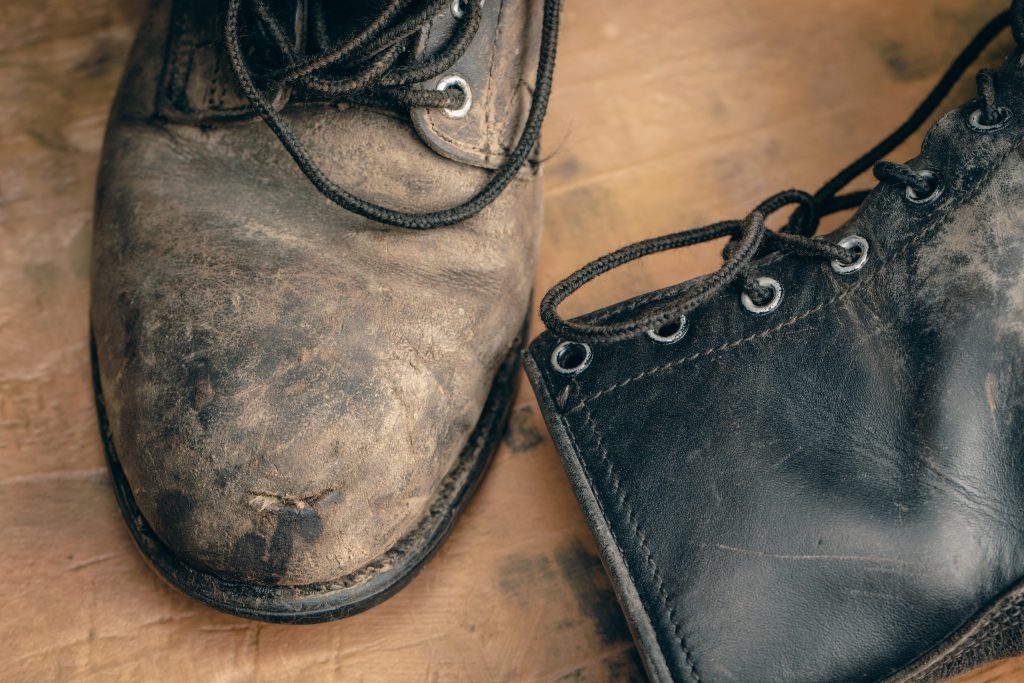1. What Shoe Material is Best for Sweaty Feet?
Introduction
What Shoe Material is Best for Sweaty Feet?
What Shoe Material is Best for Sweaty Feet? Sweaty feet can be a bothersome issue that not only leads to discomfort but can also affect your overall foot health. The type of shoe material you choose can make a significant difference in managing this problem. In this article, we will explore various shoe materials and their suitability for sweaty feet. So, if you’re tired of soggy socks and unpleasant odors, keep reading to find the perfect shoe material that will keep your feet fresh and dry.

Understanding Sweaty Feet
Before we dive into the ideal shoe materials, let’s briefly understand why some people experience excessive sweating in their feet. Sweating is a natural process that helps regulate body temperature. However, some individuals have overactive sweat glands, leading to sweaty feet, a condition known as plantar hyperhidrosis. This excess moisture can result in a range of problems, including foot odor, blisters, and fungal infections.
The Ideal Shoe Materials for Sweaty Feet
1. Mesh Fabric
Mesh fabric is an excellent choice for those with sweaty feet. This material is highly breathable, allowing air to circulate freely around your feet. The ventilation provided by mesh fabric helps to wick away moisture, keeping your feet dry even during the hottest days of summer.
2. Leather
Leather is a classic choice for footwear, and it’s also a good option for sweaty feet. Genuine leather shoes offer breathability and can absorb moisture to a certain extent. Opt for full-grain leather as it tends to be more breathable compared to synthetic alternatives.
3. Canvas
Canvas shoes, such as those made from natural cotton canvas, are lightweight and breathable. They are an excellent choice for casual wear and can help prevent excessive sweating due to their breathable nature.
4. Microfiber
Microfiber is a synthetic material that is both lightweight and breathable. Shoes made from microfiber often have moisture-wicking properties, making them suitable for individuals with sweaty feet.
Features to Look for
When selecting shoes for sweaty feet, keep an eye out for these key features:
– Moisture-Wicking Insoles
Shoes with moisture-wicking insoles can effectively absorb sweat, keeping your feet dry and comfortable.
– Antimicrobial Lining
An antimicrobial lining can help prevent the growth of odor-causing bacteria, keeping your shoes smelling fresh.
– Breathable Design
Choose shoes with a well-ventilated design to allow air to flow freely, promoting ventilation.
– Removable Insoles
Shoes with removable insoles are convenient for cleaning and airing out to prevent odors.
How to Maintain Your Shoes
To ensure your shoes remain effective at combating sweaty feet, follow these maintenance tips:
- Allow your shoes to air out after wearing them.
- Use moisture-absorbing insoles or foot powder.
- Rotate between multiple pairs of shoes to prevent excessive wear.
Conclusion
Choosing the right shoe material for sweaty feet can make a world of difference in your comfort and confidence. Mesh fabric, leather, canvas, and microfiber are all excellent choices, but remember to consider additional features like moisture-wicking insoles and breathable designs. By taking proper care of your shoes, you can enjoy fresh and dry feet, even on the hottest days.
FAQs (Frequently Asked Questions)
1. Are there any natural materials that are good for sweaty feet?
Yes, natural materials like cotton and bamboo are also good options for sweaty feet due to their breathability.
2. Can I use insoles to reduce foot sweating?
Yes, insoles with moisture-wicking properties can help reduce foot sweating and keep your feet dry.
3. How often should I replace my shoe insoles?
It’s a good idea to replace your shoe insoles every 6-12 months, depending on usage and wear.
4. Do shoe materials affect foot odor?
Yes, the choice of shoe material can impact foot odor. Breathable materials like mesh and leather are less likely to cause foot odor.
5. Can I machine wash shoes made from these materials?
It’s best to check the manufacturer’s instructions for cleaning specific shoe materials, as some may be suitable for machine washing, while others are not.




Leave a comment